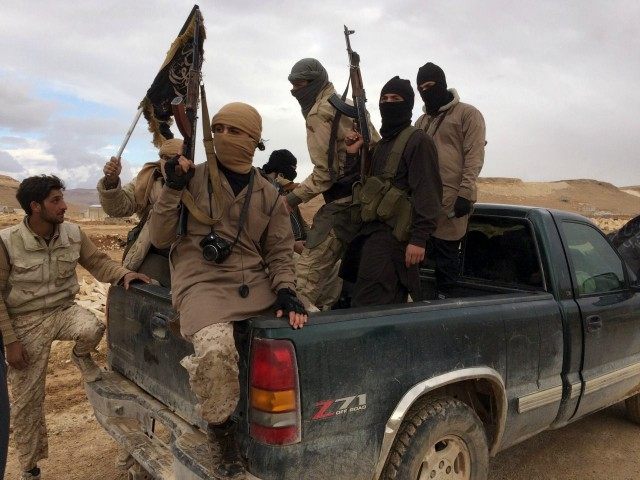House Panel Expert: U.S. ‘Losing in Afghanistan’ as Al-Qaeda Grows Stronger
WASHINGTON D.C. — Al-Qaeda in Afghanistan is growing stronger with the resurgence of the Taliban in recent years and “remains a direct threat” to America more than a decade and a half after the United States began targeting both terrorist groups in response to 9/11, an expert tells House lawmakers.
In October 2001, the United States invaded Afghanistan, and the war against the Taliban and al-Qaeda has been raging since.
President Donald Trump inherited chaos and overall deteriorating security conditions in the war-devastated country.
Under former President Barack Obama’s watch, the Taliban seized more territory in Afghanistan than during any time since the U.S. military removed the jihadist group from power in 2001 and the Islamic State (ISIS/ISIL) gained a foothold in the country.
The U.S. military “downplayed this problem of the Taliban” during Obama’s tenure, Bill Roggio, an expert at the Foundation for Defense of Democracies (FDD) and editor of the Long War Journal, told the House Foreign Affairs Subcommittee on Terrorism.
“If that’s the attitude of the U.S. military towards the Taliban inside Afghanistan, we will continue to lose this war,” he later added. “We need to reassess Afghanistan… our policy in Afghanistan is a mess frankly, and the Trump administration needs to decide what to do and how to do it quickly.”
“The Taliban—al-Qaeda relationship remains strong to this day. And with the Taliban gaining control of a significant percentage of Afghanistan’s territory, al-Qaeda has more areas to plant its flag,” also said Roggio in his written testimony.
Last Friday, the Taliban carried out its deadliest-ever attack on a major military base in northern Balkh province that left as many as 250 soldiers dead.
Although the U.S. military argues the Afghan conflict is at a “stalemate,” Roggio told the House panel that America is losing the war.
“We are losing in Afghanistan… and The Taliban controls or contests at least half of Afghanistan,” Roggio told lawmakers, adding in his written testimony:
Al-Qaeda’s footprint inside Afghanistan remains a direct threat to U.S. national security and, with the resurgence of the Taliban, it is a threat that is only growing stronger. Al-Qaeda’s presence in Afghanistan has not occurred in a vacuum. It has maintained its strength in the country since the U.S. invasion, launched a new branch, AQIS [al-Qaeda in the Indian Subcontinent], and established training camps with the help and support of the Taliban.
Roggio testified alongside Dr. Seth Jones from the RAND Corporation and Dr. Vanda Felbab-Brown from the Brookings Institution.
Echoing the U.S. military, the experts told lawmakers that Russia and Afghanistan’s neighbor Iran are providing military assistance to the Taliban, adding that neighboring Pakistan provides sanctuary to the terrorist group as well as its al-Qaeda and Haqqani Network allies.
According to the Pentagon, the Haqqani Network poses the “primary threat” to the American military in Afghanistan.
The experts noted that a U.S. military withdrawal from the war-devastated country would spell trouble for America’s national security.
The United States has already invested nearly $120 billion in nation-building efforts in the country.
Despite the threat posed by the Afghan Taliban, the group is not officially listed as a terrorist group by the United States like its ally al-Qaeda and its rival ISIS.
Roggio pointed out that although ISIS’s presence in Afghanistan is a problem, the Taliban remains a bigger threat.
ISIS is considered an enemy by both the al-Qaeda and the Taliban, considered the strongest group in the country.
“The reason the Taliban matters is the Taliban and al-Qaeda, they remain tied at the hip,” testified Roggio. “The Taliban refuse to surrender al-Qaeda members — Osama Bin Laden after the 9/11 attacks. They continued to fight side by side. Al-Qaeda serves as a force multiplier.”
“The Islamic State is on the fringe. It’s a small problem in Afghanistan compared to al-Qaeda, the Taliban, and other Pakistani jihadist groups that operate there (in ISIS’ Afghan stronghold Nangarhar province),” he added. They operate primarily in four districts in Nangarhar province and have a minimal presence in the north, and it certainly is a problem.
This week, ISIS in Nangarhar killed two U.S. troops and wounded another, the Pentagon revealed.
“Our efforts seemed to be focused on the Islamic State at this point in time while largely ignoring what the Taliban is doing throughout the country and that is directly challenging the Afghan military. They’re going toe to toe; They’re raiding their bases; They’re taking control of territory,” said Roggio.

No comments:
Post a Comment
Thanks for commenting. Your comments are needed for helping to improve the discussion.